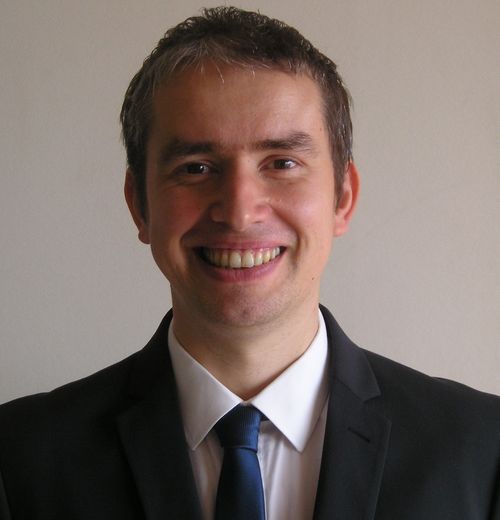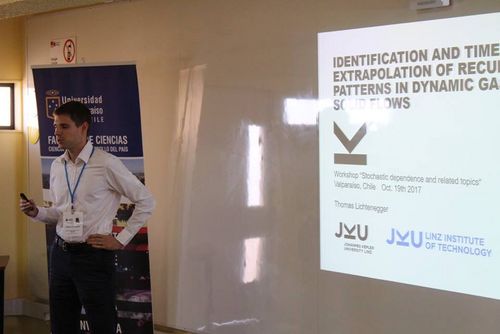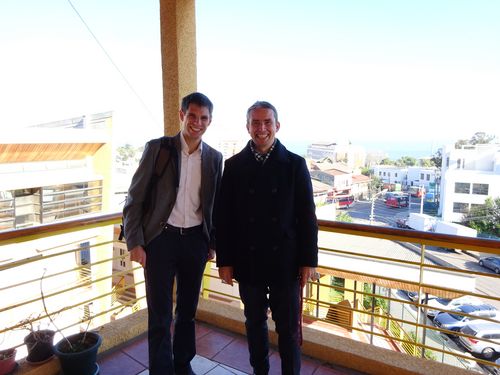High-Quality, Rapid Decisions for Complex Systems
In his LIT project, Assoc. Univ. Prof. Dr. Milan Stehlik is refining multi-criteria methods for use in for non-trivial applications,based on algebraic, statistical and stochastic methods and a unique software package. Decisions, whether in cancer treatment or financial markets, must often be made quickly - and many, often contradictory, criteria must be taken into account. Stehlik is developing methods and algorithms to provide optimal, rapid solutions in such cases.
Project Details
Seed Project
Project Manager
Milan Stehlik
Call
1/2016
During breast cancer, chemotherapy causes tissue to age by around 15 years at the molecular level. Other medical treatments and medications are also feared for their side effects. For these reasons, increasing the accuracy of cancer diagnosis and the efficiency of cancer treatment is critical.
For these reasons, increasing the accuracy of cancer diagnosis and the efficiency of cancer treatment is critical. In cancer research, however, many criteria must be taken into account: some pertain to the cancer itself, while others affect improved diagnostics or effective treatment. This raises further questions: can the high costs associated with a particular treatment be justified? How likely is it that side effects develop? How healthy is the patient, in general? - Many additional criteria can be applied right at the beginning in this area of research, and the criteria selected at start decisively affect the further process. At this point, therefore, input from oncologists, pathologists, cancer researchers, budget administrators, etc. should have to be brought in. The goal from Stehlik is to make available a data-based algebraic system and computer program, into which the greatest possible amount of the required expert knowledge and a large amount of raw data from patients are integrated. This will ensure that the best possible decisions (e.g. diagnosis, therapy) are made in the shortest possible time.
The development of multi-criteria decisions also plays an important role in other areas, for example in finance. When the dynamics of financial markets are not correctly understood, financial crises, negative interest rates and falling stock markets are the consequences. The European Central Bank, for example, still calculates its financial forecasts using models developed for positive interest rates. Stehlik and his team have developed a flexible model, one that works with positive or negative rates, or those around zero. In the meantime, it supplies more accurate forecasts than the ECB does. “When interest rates are negative, not everything we call debt is actually debt,” says Stehlik. “Today, if a country tries to cap its deficit, it can happen that it unintentionally pays off the debt of other countries.”
Multi-criteria decisions are also important in the study of the environment. Since 2014 Stehlik has also been working together with glaciologists in Valdivia, Chile on a Fondecyt project to examine changes to glaciers, environmental protection and the effects of glacial change on society.
The results of Stehlik’s research are intended to be accessible and usable by anyone. Cooperative work has already begun with some of the world’s greatest universities - Oxford (UK), Stanford, Rice or the University of California, Los Angeles (all USA).
Prof. Stehlik has been at the JKU Institute of Applied Statistics since 2006 and earned his post-doctorate lecture qualification in Statistics in 2011. In 2015, he had a professorship at the Universidad de Valparaiso, Chile.
He cooperates with numerous universities around the world, including Oxford University and Stanford University, and is involved in several consortia for large international research projects. He serves as editor-in-chief of The Open Statistics & Probability Journal (Bentham Open), opens an external URL in a new window, Associate Editor in Europe for Neural Computing and Applications (Springer), opens an external URL in a new window, and Associate Editor for the Journal of Applied Statistics (Taylor and Francis), opens an external URL in a new window.
Prof. Stehlik’s research focuses on the development of multi-criterial decisions, particularly when it comes to make decisions regarding cancer treatment, financial decisions, and ecosystems.
Prof. Stehlik remarked, “The LIT project is very important to me. I believe the JKU has great potential in many areas but we need money! In my case, for example, so I can purchase sufficient data and information.”

Organized by Milan Stehlik, LIT JKU, Austria, IFAS & IDEUV Chile
Invited Keynote Speaker Thomas Lichtenegger, LIT JKU, Austria

